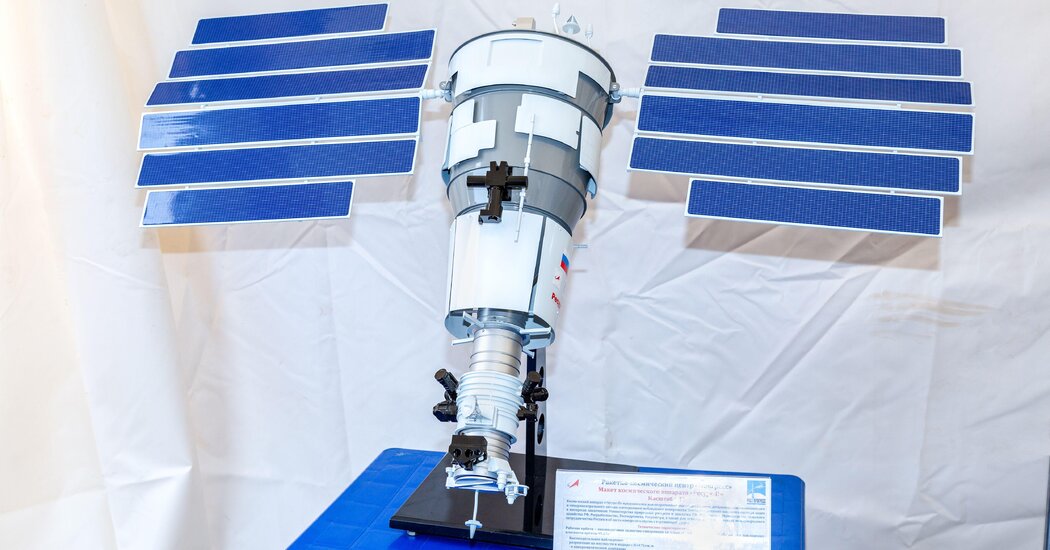The cause of the incident, which added to a growing amount of dangerous space junk in low Earth orbit, remains unknown.
A decommissioned Russian satellite fractured in space on Wednesday, creating a cloud of debris in low Earth orbit that prompted astronauts aboard the International Space Station to take protective measures.
The satellite, which was orbiting about 220 miles above the ground, broke apart into more than 100 shards, according to an announcement on Thursday by U.S. Space Command, a Defense Department agency that executes military operations in space. Space Command added in its statement that there were “no immediate threats,” and that assessments of the situation were ongoing.
Known as Resurs P1, the satellite was launched in 2013 by Russia to observe Earth and produce imagery from space to assist with agriculture, meteorology, transportation and other purposes. Russia retired Resurs P1 in 2022. Since then, the satellite had slowly been losing altitude.
Roscosmos, the Russian space agency and the former operator of the defunct satellite, did not respond to a request for comment.
Resurs PI’s destruction added to a growing amount of space junk — which includes dead satellites, lost tool bags and much more — around Earth. NASA estimates that more than 25,000 pieces of debris wider than four inches are currently in orbit, and the number grows to over 100 million when much smaller objects are counted. Experts see space debris accumulation as a risk to future space operations, and there are projects being developed to remove larger items from orbit.
The fragmenting of the Resurs P1 satellite was detected and announced on Wednesday by LeoLabs, an organization that tracks the safety of satellites orbiting Earth. But why the event occurred is still unknown.
